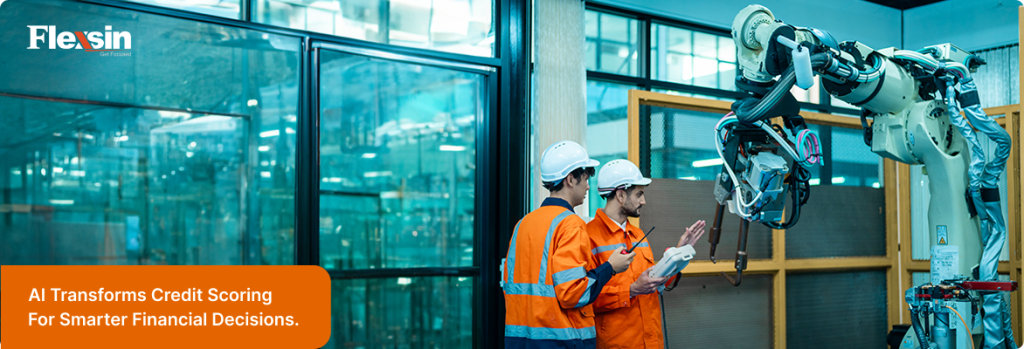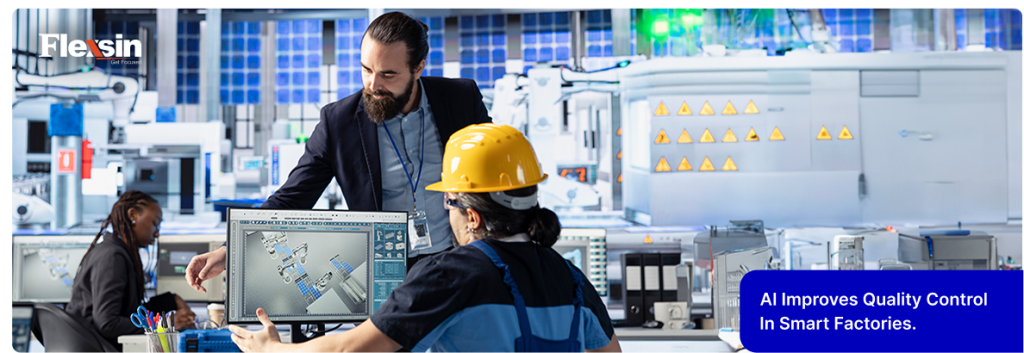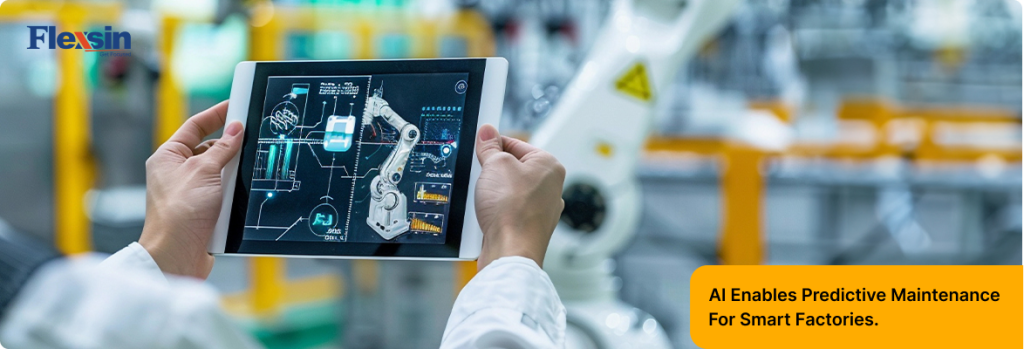In the modern manufacturing world, sustainability has become more than just a buzzword, it’s a critical business strategy. Manufacturers are increasingly tasked with reducing waste, improving energy efficiency, and optimizing their supply chains to meet global sustainability goals. With smart factory solutions, manufacturers can transform their operations to not only improve productivity but also drive sustainability.
From reducing carbon footprints to minimizing waste and energy consumption, the stakes are high for manufacturers. The integration of smart factory solutions helps businesses address these issues head-on by incorporating advanced technologies like predictive maintenance, AI-driven analytics, and intelligent manufacturing systems.
1. Reducing Energy Consumption with Smart Factory Integration
One of the most significant challenges in manufacturing is energy consumption. Traditional manufacturing processes are often inefficient, leading to higher energy costs and a greater environmental impact. With smart factory integration, manufacturers can track energy usage in real-time, identify inefficiencies, and optimize their processes.
With IoT-enabled devices and AI-driven systems, factories can monitor machinery performance, automatically adjusting operations to ensure energy efficiency. Predictive algorithms can forecast when a machine is likely to consume excessive energy, triggering maintenance or adjustments before it becomes a problem. This level of insight is transformative for manufacturers aiming to meet sustainability goals while reducing operational costs.
Waste Reduction and Resource Optimization Through Automation
Manufacturing waste is another significant sustainability challenge. Whether it’s excess material usage, defective products, or inefficient production methods, waste leads to higher costs and environmental harm. Manufacturing automation powered by AI helps eliminate these inefficiencies by ensuring precision at every stage of production.
By implementing automated systems that are data-driven and continuously learning from past production runs, manufacturers can cut down on waste. Additionally, smart factory solutions can optimize material usage by predicting the right amount of raw materials needed for each production cycle, reducing scrap and minimizing resource consumption.
Sustainability Reporting and Compliance with Smart Analytics
Compliance with sustainability regulations and standards is a growing concern for manufacturers. Smart factories can help companies track and report their sustainability efforts more effectively through intelligent manufacturing systems. Real-time data captured from sensors and connected devices allows businesses to monitor their carbon footprint, waste management processes, and energy usage.
With the help of smart factory consulting services, businesses can gain the insights necessary to meet compliance standards and implement strategies that align with global sustainability initiatives. These insights are critical for manufacturers looking to not only meet regulations but also communicate their sustainability achievements to customers, partners, and regulatory bodies.

2. Customization Challenges in Smart Factory Adoption
While the benefits of smart factory solutions are clear, many manufacturers face significant challenges when it comes to customization. Every factory has its own unique set of processes, systems, and goals. A one-size-fits-all approach simply doesn’t work. This is where smart factory consulting services play a crucial role.
Tailoring Smart Factory Solutions to Your Business Needs
One of the biggest hurdles in adopting a smart factory is customizing the solution to fit a company’s specific needs. Flexsin’s Smart Factory Consulting Services offer tailored solutions that align with a manufacturer’s goals, industry requirements, and existing infrastructure.
For example, a manufacturer specializing in automotive parts might require more robust predictive maintenance tools, while a food production plant might prioritize energy efficiency.
Integrating New Technologies with Legacy Systems
Many manufacturers operate with a mix of legacy systems and newer technologies. Integrating Industry 4.0 innovations into existing workflows without disrupting operations can be a delicate task. Smart factory consulting services can help ensure that new technologies are integrated seamlessly, allowing manufacturers to unlock the full potential of automation, AI, and IoT while preserving the value of their current systems.
An example of this might be integrating cloud-based platforms for data analytics with older factory equipment, allowing for real-time data collection and processing without requiring a complete overhaul of legacy machinery.
Scaling Smart Factory Solutions as Your Business Grows
Scalability is another key challenge in smart factory adoption. As businesses grow and expand their operations, the solutions they implement today may not be able to handle the demands of tomorrow. Smart factory consulting services ensure that solutions are scalable, providing businesses with the flexibility to adapt to changing market conditions and customer needs.
A good example of scalable smart manufacturing solutions includes the ability to add new IoT sensors or AI systems to existing infrastructure without requiring massive reinvestment. As businesses scale, their connected manufacturing ecosystems can evolve to support larger production volumes, increased complexity, and new product lines, ensuring that they remain competitive and sustainable.
3. How Smart Factory Consulting Services Drive ROI and Efficiency
Smart factories consulting offers tremendous potential for improving ROI and operational efficiency. However, the path to realizing these benefits requires careful planning, seamless integration, and ongoing optimization. Smart Factory Consulting Services provide the expertise necessary to unlock the full value of Industry 4.0 technologies, ensuring manufacturers not only save money but also enhance their overall performance.
Maximizing ROI with Predictive Maintenance
One of the most impactful ways to increase ROI in a smart factory is through predictive maintenance. Rather than reacting to machine failures after they occur, predictive maintenance uses data from IoT sensors and AI-driven algorithms to anticipate when equipment is likely to fail. By proactively addressing maintenance needs, manufacturers can reduce downtime, extend the lifespan of machinery, and save money on costly repairs.

Driving Cost Savings Through Automation
Automating production processes is one of the most effective ways to drive efficiency and reduce operating costs. By leveraging smart manufacturing technologies, manufacturers can reduce labor costs, minimize human error, and increase production speed. Industrial automation powered by AI implementation company allows businesses to optimize their workforce and free up employees for more value-added activities.
Improving Production Efficiency with AI-Driven Insights
AI-driven analytics plays a crucial role in improving production efficiency. Through real-time data processing, AI solutions can identify bottlenecks, forecast demand, and recommend changes to the production schedule. This constant stream of actionable insights enables manufacturers to make data-driven decisions that optimize workflows, improve product quality, and reduce waste.
4. Scalability and Flexibility: Key Features of Smart Factory Solutions
As businesses grow, their manufacturing needs evolve. To keep up with this growth, companies need smart factory solutions that are not only effective but also scalable. Smart factory consulting services ensure that manufacturers can scale their operations without disrupting existing workflows or compromising on sustainability.
Modular Smart Factory Solutions for Growth
Scalable smart factory solutions are designed to grow with the business. Instead of implementing a one-size-fits-all solution, manufacturers can adopt modular smart factory solutions that can be adjusted and expanded based on evolving needs. These solutions enable businesses to start small and scale as needed without making large upfront investments in technology.
Integrating New Technologies Without Overhauling Operations
Integrating new technologies can be a complex and costly endeavor, especially for manufacturers with existing infrastructure. Smart factory consulting services help companies integrate Industry 4.0 technologies into their current systems, ensuring that the transition is smooth and does not disrupt ongoing operations.
Flexsin’s consulting services can help businesses integrate cloud-based platforms, machine learning algorithms, and AI technologies into legacy systems. This allows manufacturers to harness the power of smart factory solutions while avoiding the costly and time-consuming process of replacing all existing equipment.
Flexible Production Systems for Changing Demand
Another significant challenge for manufacturers is adapting to changing customer demands. Traditional manufacturing systems often struggle to keep up with rapid shifts in consumer preferences or production requirements. Smart factories address this issue with flexible production systems that can easily adapt to new products, materials, or production schedules.
For instance, a manufacturer that produces custom products might need to quickly switch production lines based on customer demand. With a connected manufacturing ecosystem, smart factories can automate the reconfiguration of production lines, reducing downtime and ensuring that the factory can respond to customer needs without delays.

5. Building a Connected Manufacturing Ecosystem
The future of manufacturing lies in a fully connected manufacturing ecosystem-one that seamlessly integrates devices, processes, and people to create a unified, intelligent system. Smart factory consulting services are pivotal in helping businesses navigate the complexities of building this ecosystem, which leads to greater collaboration, efficiency, and innovation.
Seamless Integration with Supply Chain Partners
A key benefit of smart factory solutions is the ability to connect with suppliers and other stakeholders in real time. Through connected industrial networks, manufacturers can share data and insights with suppliers, ensuring smoother coordination across the supply chain. This helps reduce lead times, improve inventory management, and ensure timely deliveries.
Leveraging Real-Time Data for Enhanced Collaboration
Collaboration is another crucial aspect of the connected manufacturing ecosystem. By utilizing real-time data, industrial and manufacturing service providers can improve communication and coordination between departments, teams, and external partners. This creates a more agile and responsive manufacturing environment that can adapt quickly to changes.
For instance, real-time data from production lines can be shared instantly with the sales team, allowing them to adjust customer expectations and delivery timelines based on current production status. This improves customer satisfaction and enhances the overall customer experience.
Driving Innovation Through Continuous Improvement
Smart factories are not static; they are designed for continuous improvement. AI-driven analytics and machine learning enable businesses to constantly optimize processes, identify areas for improvement, and implement new ideas. As a result, manufacturers can foster a culture of innovation that drives long-term sustainability and competitiveness.
By leveraging AI-powered automation and real-time data analytics, Flexsin optimized manufacturing processes to reduce energy consumption and waste, helping clients like Daikin, FPI Future Pipe Industries, and Jamis Bikes, achieve sustainable production goals.
Transform Your Manufacturing Business with Smart Factory
The adoption of smart factory solutions is no longer optional-it’s essential for manufacturers who want to remain competitive, reduce costs, and meet sustainability goals. By partnering with Flexsin Technologies for Smart Factory Consulting Services, you gain the expertise needed to overcome the challenges of customization, integration, and scalability while maximizing ROI and operational efficiency.


 Munesh Singh
Munesh Singh